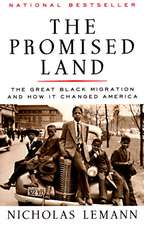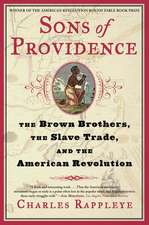Counting Americans: How the US Census Classified the Nation
Autor Paul Schoren Limba Engleză Hardback – 3 aug 2017
| Toate formatele și edițiile | Preț | Express |
|---|---|---|
| Paperback (1) | 197.69 lei 10-16 zile | |
| Oxford University Press – 17 mar 2020 | 197.69 lei 10-16 zile | |
| Hardback (1) | 629.79 lei 31-37 zile | |
| Oxford University Press – 3 aug 2017 | 629.79 lei 31-37 zile |
Preț: 629.79 lei
Preț vechi: 715.70 lei
-12% Nou
Puncte Express: 945
Preț estimativ în valută:
120.52€ • 130.87$ • 101.24£
120.52€ • 130.87$ • 101.24£
Carte tipărită la comandă
Livrare economică 12-18 aprilie
Preluare comenzi: 021 569.72.76
Specificații
ISBN-13: 9780199917853
ISBN-10: 019991785X
Pagini: 376
Dimensiuni: 236 x 155 x 33 mm
Greutate: 0.64 kg
Editura: Oxford University Press
Colecția OUP USA
Locul publicării:New York, United States
ISBN-10: 019991785X
Pagini: 376
Dimensiuni: 236 x 155 x 33 mm
Greutate: 0.64 kg
Editura: Oxford University Press
Colecția OUP USA
Locul publicării:New York, United States
Recenzii
Paul Schor has written a superb book on the history of population counting in the American census since 1790. The story is told in depth, systematically and comprehensively, using deep archival exploration of government sources, explication of long-forgotten debates about the supposed inferiority of people from some 'races' or 'national origins' compared to others, and the alleged threats of people from various parts of the world to the true American experiment. It's a cautionary tale in the context of our current policy questions about immigration, citizenship, racism, and the future of American society
An informed account of the twists and turns in the long history of Census efforts to color-code Americans-to get it right. We learn that 'getting it right' has not happened and probably cannot happen, a deeply instructive lesson about the space in which the census meets politics
Through the painstaking reconstruction of Congressional debates, internal Census Bureau reflection on racial classification, and the grassroots practices of enumeration, Paul Schor presents a startling insight: that official US racial categories which appear to have been stable over time-because they were used continuously from one census to the next with little overt change-in fact embodied varying meanings and notions of difference depending on their historical context. The result is an unparalleled history of US census racial classification that offers new empirical knowledge and understandings of the categories that Americans live with to this day
For scholars who consult the US Census in their research, historian Schor's outstanding book is invaluable.The research is impeccable, especially Schor's use of congressional archives to determine political thinking over a period of almost a century and a half... Most revealing is the author's discussion of the division between the North and South concerning blacks during slavery and Reconstruction... Essential
[T]here is plenty of meat there to satisfy the most voracious 'clio-vore.' This reading will appeal especially to social scientists, who, like this reviewer, have made use of postwar census data in their own work, but are likely to know little of the fascinating history and evolution of the Census Bureau's own development and its ever-changing questionnaires and published reports from earlier times.
It has become commonplace to identify racial categories as being social constructs, and Counting Americans offers extensive documentation of this claim.
An informed account of the twists and turns in the long history of Census efforts to color-code Americans-to get it right. We learn that 'getting it right' has not happened and probably cannot happen, a deeply instructive lesson about the space in which the census meets politics
Through the painstaking reconstruction of Congressional debates, internal Census Bureau reflection on racial classification, and the grassroots practices of enumeration, Paul Schor presents a startling insight: that official US racial categories which appear to have been stable over time-because they were used continuously from one census to the next with little overt change-in fact embodied varying meanings and notions of difference depending on their historical context. The result is an unparalleled history of US census racial classification that offers new empirical knowledge and understandings of the categories that Americans live with to this day
For scholars who consult the US Census in their research, historian Schor's outstanding book is invaluable.The research is impeccable, especially Schor's use of congressional archives to determine political thinking over a period of almost a century and a half... Most revealing is the author's discussion of the division between the North and South concerning blacks during slavery and Reconstruction... Essential
[T]here is plenty of meat there to satisfy the most voracious 'clio-vore.' This reading will appeal especially to social scientists, who, like this reviewer, have made use of postwar census data in their own work, but are likely to know little of the fascinating history and evolution of the Census Bureau's own development and its ever-changing questionnaires and published reports from earlier times.
It has become commonplace to identify racial categories as being social constructs, and Counting Americans offers extensive documentation of this claim.
Notă biografică
Paul Schor is an associate professor of history at the Université de Paris.
















